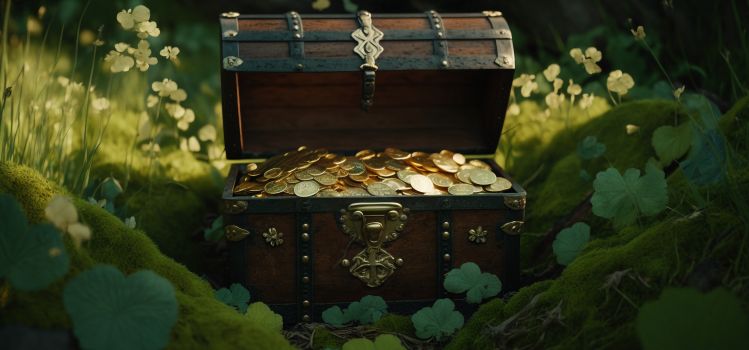
Hello everyone,
Welcome to the latest issue of our church newsletter. Our newsletter is sent out regularly to share reflections from services, Bible readings and church news to our church family. You can find previous issues on our church website here.
Our newsletter will be posted fortnightly over the school summer holiday period. The next issue of the newsletter will be posted on 18th August.
We would love to hear from you and are always looking for uplifting and encouraging content to share in future issues of this newsletter. If you have any ideas or content that we can share, please do email them to Louise (publicity@christchurchuxbridge.org.uk)
Opening Prayer
Gracious God,
we can often feel very ordinary and inadequate,
worrying that we are not good enough.
Teach us in these moments
to treasure ourselves as your creation,
and let your hospitable love flow through us to others.
Amen.
(Taken from Roots)
Reflection from 23 July: Wherever we are
Reading – Genesis 28: 10-22
This is the second service in the ‘Frontline Sundays’ series of services. Last time we reflected on how we’re only in church for a short time each Sunday – our time as a ‘gathered’ church. Most of our time we’re a ‘scattered’ church. We’re out and about in our workplaces, in our homes, in our local communities. The places where we are in our lives outside of this church are what we referred to, and will continue to refer to, as our ‘frontlines’. Where we are throughout the week matters hugely to God. We are no less church in our everyday lives than we are here in this building.
In our reading, we hear about an encounter that Jacob has with God. Encounters with God are transformative. They happen in the course of life with all its ups and downs, in the places we find ourselves in regularly and in the places we find ourselves in unexpectedly.
Jacob’s encounter with God in our reading happens at a time when he is in serious conflict with his brother Esau. Jacob has tricked Esau out of his birthright and Esau wants to kill him. And so, Jacob has run away. As he stops to rest for the night, he encounters God.
Here inside our church, it feels quite easy to stand here and talk about people encountering God. Outside church though, perhaps we might be more suspicious about such encounters and ask more questions. We might dismiss it as ‘just a dream’ or explain it as being due to the stress Jacob was under.

In the Bible, there are many stories of people encountering God. Through dreams, or visions, or experiencing the presence of God in other ways. We often don’t expect to encounter God in the ordinary places. It perhaps is easier to imagine encountering God in ‘holy’ places such as a church or a cathedral.
Most of the encounters with God we read about in the Bible though take place in places where people least expect it. Moses encountered God in the burning bush. Elijah was expecting an encounter with God, but it was not in the wind, the fire or the earthquake – but in a whisper at the entrance of a cave. Zacchaeus met Jesus up a tree. The woman at the well was just going about her daily tasks. The first disciples were just doing their ordinary, everyday jobs. Mary Magdalene looked for Jesus in a tomb but found him standing behind her. After the resurrection, the disciples encountered Jesus on a beach making breakfast.
Encounters with God can take place anywhere. There are people today who will share stories of encountering God in unexpected places – in prisons, in workplaces, in their homes, in hospitals, while out on a walk. For all of these people, the ordinary places become transformed by their encounter with God.
Turning back to Jacob. He had stopped in an ordinary place, which was just somewhere to stop for the night. But through his encounter with God, it became extraordinary – a touching place between heaven and earth. It became somewhere we might refer to as a “thin place” perhaps – a place where heaven and earth seem to come closer together.
Jacob is so moved by this experience that he renames the place of his encounter. He calls it “Bethel” – the house of God and he marks it with a stone. For Jacob, this ordinary place has become holy.
We might not encounter God in the same way that Jacob did, but our ordinary places can become holy too. We go out to places that matter to God and encounter people that matter to God. And just as God tells Jacob “I am with you and will watch over you wherever you go”, God is with us too wherever we go and whatever we do.
One final point to note is that Jacob encountered God when he stopped to rest. Perhaps that is also a reminder to us that we too need times when we slow down and stop, when we take time to reflect, when we allow ourselves to become more aware of God’s presence. Time to stop, to “be still and know that I am God”.
As we go about our own lives this week, may we be aware of God’s presence with us, working through us and be open to where God may be leading us in our own frontlines this week. Amen.
Louise George (adapted from the Frontline Sundays sermon notes)
Reflection from 30 July
Reading – Matthew 13: 31-33, 44-52
A man finds buried treasure in a field and he’s so excited and happy, Jesus says, that he sells everything he has so that he can buy the field. Another person, a collector of fine pearls, comes across a really special and beautiful pearl and again sells everything she has to go and buy that pearl. It’s quite hard, I think when I think of these parables today, not to get caught up in this as an issue of greed – ‘I just wanted it so much I had to have it’ – or about speculation – ‘you know, this is going to be a really good investment this field.’ I think that’s more to do with our times though than it is to do with the point of the parable because Jesus isn’t talking about people who are trying to get rich or are trying to speculate to accumulate. He’s talking about people who recognise something of real value when they see it.
The Staffordshire Hoard, which I mentioned earlier, is a great example of this because the man who found it didn’t keep any of it for himself. He realised straight away that he’d come across something very special and that it would have a financial value, but much more importantly, it had a historic value that was important for the whole country. And so he did what you’re supposed to do if you find buried treasure, which is to report it to the portable antiquities scheme and to the farmer whose land he found it on. Which meant that the find could be properly secured and it could be investigated and excavated as a proper archaeological concern and recorded and researched so that the whole value was found.
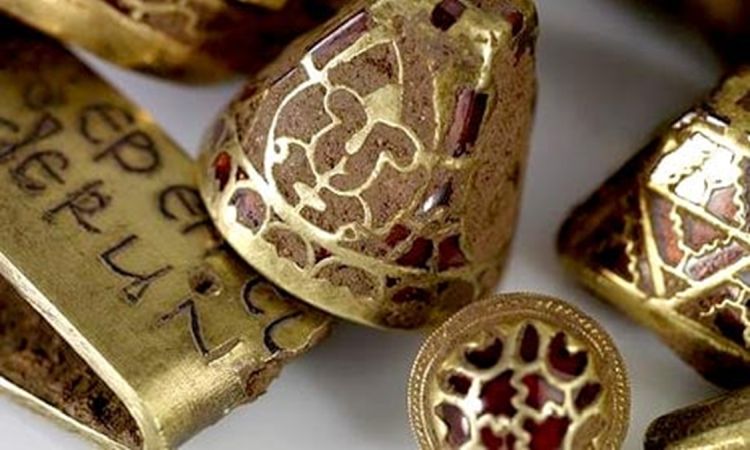
The Staffordshire Horde was declared treasure and valued at just over three and a quarter million pounds. It’s now jointly owned by Birmingham City Council and Stoke-on-Trent City Council and managed by their respective museums trust. But nobody gets rich out of that find, and in fact it costs a lot of money to do the excavation and the exploration and to preserve the artefacts. But it was worth it because of its historic and artistic importance.
The kingdom of heaven is that important. It’s that exciting. It’s worth spending large amounts of money on. Because it matters, it’s worth, Jesus says, giving up everything else in order to have it. Now we know that for some of the early Christians, the people who are reading Matthew’s gospel, giving up everything else, was very real. They might have had to leave their families, their jobs. They certainly risked being thought mad or heretical, and some lost their lives. And sadly, we know across the world today there are Christians who are being discriminated against, even persecuted, for their faith. But for most of us in this country, thank goodness that is not our situation.
So this morning I want to look at it at what it means for us to have that buried treasure of knowing about God and the kingdom of God. For us, sometimes it’s all too easy to take everything pretty much for granted to lose our sense of excitement at God’s kingdom. We’re like people who find buried treasure in a field and think, “oh well, it’ll still be there tomorrow.” and we do nothing about it.
Now we know about the kingdom of heaven. We know God loves us. We know that Jesus lived and died for us, and that God raised him to new life. We know that anytime we want to, we can meet and pray to this wonderful God who loves us and longs to hear from us. Every week we can come here and worship freely. We can meet with other people who also want to worship. We can pray together and praise God and affirm and encourage one another.
We know all this. We know this richness, and yet we still kind of think, oh well, it’s not all that exciting. Maybe we don’t want to appear too keen. We’ll come to church when it suits us. And we have to ask ourselves what is going on? It’s a serious question. I’m not having a go at anybody who’s not here because everybody needs breaks and holidays, and I don’t have easy answers. But I wonder, because I think we know that deep down, taking God seriously will cost us everything. It won’t cost us our livelihoods and our homes and our jobs and for most of us, it won’t be our families throwing us out. But for God to really work in us, to transform us into the likeness of Christ Jesus, it means letting go of the likeness of ourselves that we already have. And that takes hard work.
I mean, you know, if I look at myself and I look at Jesus. I think that’s quite a stretch. So actually for that work to happen, it means us being very honest about ourselves before God. It means being willing to keep coming back to God for forgiveness. It means learning to see other people through God’s eyes and to treat them as Jesus would have treated them. And sometimes it’s only when we try and do this that we see how remarkable Jesus was, that he could keep doing that because I try, and I fail. It means allowing God to make us uncomfortable so that we can find the real comfort that only God can bring. Knowing about buried treasure is one thing but digging it up and seeing it in all its beauty takes hard work.

There is a story that some of you may know of a hard-working and generous farmer who lived with three sons who had somehow managed to grow up lazy and greedy. He was getting older and he knew that if he left the farm to them they wouldn’t really look after it, they’d let it go to ruin. So he went to visit a hermit, a wise old man, to ask for advice. “Leave it to me,” said the hermit. In due time, the man died and the hermit went to visit the sons to offer his sympathies, and he said, “I have something very important to tell you. Your father before he died buried the treasure for your inheritance in those fields out here. If you dig it up, it will be enough to feed and clothe you for the rest of your life.”
The sons thought this was wonderful. As soon as they decently could, they went out to the field and started digging. They tore the whole field up and dug up the entire farm and found nothing, so they began to wonder if the hermit had tricked them. Back they went to accuse this hermit of deceiving them. “Oh, I haven’t deceived you,” said the hermit.” There really is treasure in those fields.”
“Well, doesn’t look like it,” said one of the sons, “but since we’ve cleared the ground anyway, we might as well plant a crop.” And so they planted a crop and they let it grow, and took in a good harvest and they were able to sell that harvest for a decent sum. After the harvest, the sons wondered if maybe they’d missed the treasure the first time round, so maybe they should just look again. So they went back and dug over the fields again, but again they found no treasure and went to the hermit and complained. “Keep going,” said the hermit. “The treasure is there. And you must promise me that when you find it, you will share its value with the poor of the village.”
Well, they weren’t impressed, but once again the ground was clear and they thought they might as well plant a crop. So again, they had a good harvest. And as they were taking the harvest to market, they met the hermit again. “Ah!” said the hermit. “I see you have found your treasure.” The sons were baffled. “Where? We didn’t find anything.” Then they saw what the hermit meant. They then knew where their treasure really lay in the hard work in the producing the crop, in the benefiting from the harvest. And they learned to become honest and content and hard-working and live their lives in peace.
Finding God’s treasure may take work. And it may end up not looking like the treasure we thought we were looking for or the treasure we were expecting. And sometimes we don’t really know what treasure we want.
Here’s another story. Once upon a time, there was a holy man who spent his days sitting quietly by a riverbank fishing. One day he caught a fish and in the fish’s mouth was a beautiful priceless jewel. The holy man thanked the fish, threw the fish back into the water and put the jewel carefully into a bag. Word got around that this holy man had a valuable jewel and a wealthy merchant thought he would go and buy the jewel for himself. He thought, “this holy man is going to be simple. He won’t really understand what the jewel is worth, so I’m likely to get it for a good price.”
So he walked along the riverbank and when he found the holy man, he said, “I understand you have a great treasure.” “Indeed, I do,” said the holy man. “May I see the jewel?” asked the merchant. “Oh yes,” said the holy man and opened the bag to show the jewel to the merchant and it was even more beautiful and special than the merchant had imagined. “How much?” said the merchant cautiously. “How much would you like for this jewel?” The holy man said, ”If you really like it, you can have it.” and he gave the merchant the jewel.
Well, the merchant was delighted. This was even better than he hoped. What a fool. He now owned this rare and hugely valuable jewel and took it home in great glee. But then overnight, something troubled him. The next day, he went back to the holy man. “Now,” he said, “I want you to tell me the real treasure, the treasure that you have within you. That makes it possible for you to give a priceless jewel away so easily.”
We have a real treasure in the kingdom of God. We have real treasure in Jesus. It will cost us. It will cost us our shallow selves, our sinful selves. It may change us in ways we never imagined. But we have the treasure of the love of God. And that’s worth everything else.
Revd Sue McCoan
Readings for 6 August
Matthew 14: 31-21
Jesus Feeds the Five Thousand
13 When Jesus heard what had happened, he withdrew by boat privately to a solitary place. Hearing of this, the crowds followed him on foot from the towns. 14 When Jesus landed and saw a large crowd, he had compassion on them and healed their sick.
15 As evening approached, the disciples came to him and said, “This is a remote place, and it’s already getting late. Send the crowds away, so they can go to the villages and buy themselves some food.”
16 Jesus replied, “They do not need to go away. You give them something to eat.”
17 “We have here only five loaves of bread and two fish,” they answered.
18 “Bring them here to me,” he said. 19 And he directed the people to sit down on the grass. Taking the five loaves and the two fish and looking up to heaven, he gave thanks and broke the loaves. Then he gave them to the disciples, and the disciples gave them to the people. 20 They all ate and were satisfied, and the disciples picked up twelve basketfuls of broken pieces that were left over. 21 The number of those who ate was about five thousand men, besides women and children.
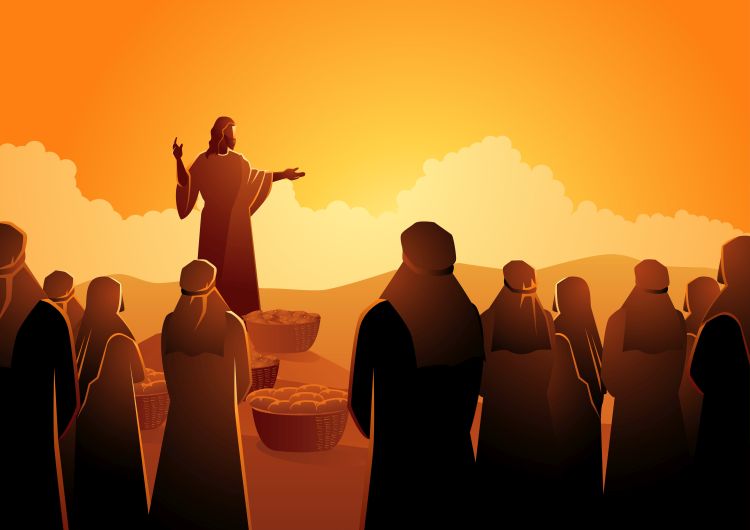
Further readings from the lectionary this week are as follows:
- Isaiah 55: 1-5
- Psalm 145: 8-9, 14-21
- Romans 9: 1-5
Readings for 13 August
Matthew 14: 22-33
Jesus Walks on the Water
22 Immediately Jesus made the disciples get into the boat and go on ahead of him to the other side, while he dismissed the crowd. 23 After he had dismissed them, he went up on a mountainside by himself to pray. Later that night, he was there alone, 24 and the boat was already a considerable distance from land, buffeted by the waves because the wind was against it.
25 Shortly before dawn Jesus went out to them, walking on the lake. 26 When the disciples saw him walking on the lake, they were terrified. “It’s a ghost,” they said, and cried out in fear.
27 But Jesus immediately said to them: “Take courage! It is I. Don’t be afraid.”
28 “Lord, if it’s you,” Peter replied, “tell me to come to you on the water.”
29 “Come,” he said.
Then Peter got down out of the boat, walked on the water and came toward Jesus. 30 But when he saw the wind, he was afraid and, beginning to sink, cried out, “Lord, save me!”
31 Immediately Jesus reached out his hand and caught him. “You of little faith,” he said, “why did you doubt?”
32 And when they climbed into the boat, the wind died down. 33 Then those who were in the boat worshiped him, saying, “Truly you are the Son of God.”
Further readings from the lectionary this week are as follows:
- 1 Kings 19: 9-18
- Psalm 85: 8-13
- Romans 10: 5-15
Our worship
We meet at 11am for our Sunday services, which are also live-streamed on our Facebook page. If you wish to view our services online, you can find them at www.facebook.com/christchurchuxbridge. You do not have to be a Facebook user to watch them – our services are publicly viewable. You can also view a recent service on our church website. Our service this week will be the third in our ‘Frontline Sundays’ series and will be led by Christ Church member, Joanne Mackin. You can find the order of service here.
If you are unable to join us in person or online for our Sunday services, but would like to receive a recording of them on a memory stick to watch at home, please let us know.
Forthcoming services
6 August – Christ Church worship group (Joanne Mackin)
13 August – Karen Campbell (URC Secretary for Global & Intercultural Ministries (Mission))
20 August – Lilian Evans (URC lay preacher)
27 August – Revd Dr Claire Potter (Methodist minister) – Holy Communion
Church charity news
Table-top sale – Saturday 23rd September, 10am – 3pm
There will be a table-top sale in aid of our church charity, Communicare Counselling Service, on Saturday 23rd September 2023, 10 am to 3pm.
Trestle tables will cost £10 each. I shall be selling my goods in aid of Christ Church funds. If you wish to book a table, please contact me on 07810 433986 or the church office.
Jean George
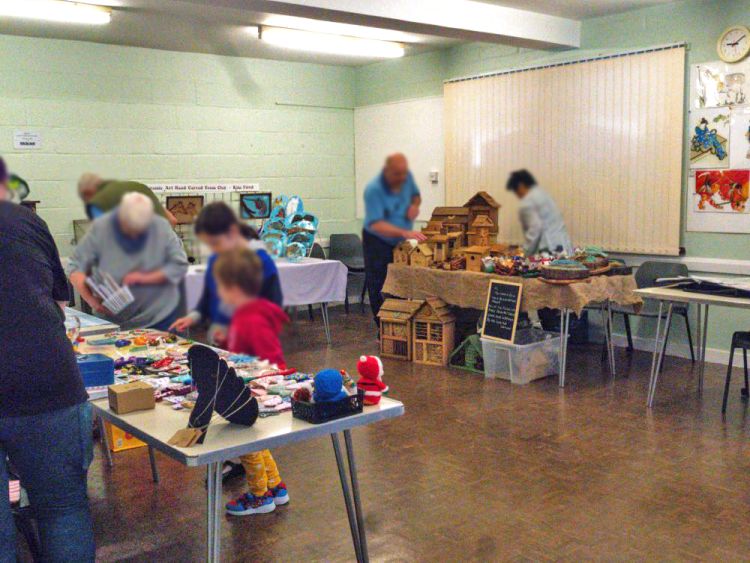
You can find more details about Communicare Counselling Service, our church charity for 2023 at:
https://christchurchuxbridge.org.uk/activities/churchcharity2023
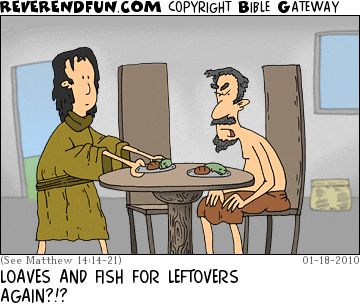
Parables
I start by recommending “The Authentic Gospel of Jesus” by Geza Vermes.
Like others, Geza Vermes set out to discover what Jesus actually taught – as opposed to what the Church has said that he taught! Like others, he believed that in the parables we get closest to the authentic Jesus.
Jesus was not a Christian in the sense familiar to the Church. He was a Galilean Jew steeped in the tradition of parable telling.
Parables were not meant to be anecdotal. They were designed to convey truth but those who heard them had to search for the truths within them. For that reason the Gospel accounts of Jesus explaining a parable to his disciples have to be regarded with a measure of scepticism! We should also be a little wary of preachers who tell us what Jesus meant in any parable. Consider, if you will, the parable about the man beaten up on the Jerusalem-Jericho road. (Jesus never called it the Good Samaritan!). What truth did it convey? Is it about the Samaritan or is it about the priest and the Levite? Or about the man who asked, “who is my neighbour?”
We are being presently guided by the lectionary to think about some of the parables. I hope we can do so by asking ourselves “Who was the real Jesus?” That is surely a question worth all Christians pursuing!
Howard Cooper
The Little Mermaid
Thursday 24 August, 7.30pm
Friday 25 August, 2.30pm and 7.30pm
Saturday 26 August, 2.30pm and 7.30pm
Come and join Sophie, one of our CCK members, and her friends on a magical musical journey ‘Under the Sea’ for the Beck Summer Youth Project’s production of Disney’s ‘The Little Mermaid’.

Based on one of Hans Christian Andersen’s most beloved stories and the classic animated film, Disney’s The Little Mermaid is a hauntingly beautiful love story for the ages. With music by eight-time Academy winner Alan Menken, lyrics by Howard Ashman and Glenn Slater, and a compelling book by Dwight Wright, this fishy fable will capture your heart with its irresistible songs including Under The Sea, Kiss The Girl and Part Of Your World.
Ariel, King Titan’s youngest daughter, wishes to pursue the human Prince Eric in the world above and bargains with the evil sea witch, Ursula, to trade her tail for legs. But the bargain is not what it seems and Ariel needs the help of her colourful friends Flounder the fish, Scuttle the seagull, and Sebastian the crab to restore order under the sea.
Sophie will be understudying the role of Flounder and performing the role on Friday 25 August at the 2.30pm performance. She will also be performing in the ensemble in the other productions.
Ticket are available from the Beck Theatre or online at https://becktheatre.org.uk/Online/tickets-syp-hayes-2023 with ticket prices starting at £17.50.
Dates for your diary
10 September – Congregational meeting
23 September – Table-top sale in aid of Communicare Counselling Service
30 September – URC Learning Hub (focusing on small groups and intentional relationships)
14 October – Quiz night in aid of Communicare Counselling Service
19 November – Congregational meeting
Children’s Corner
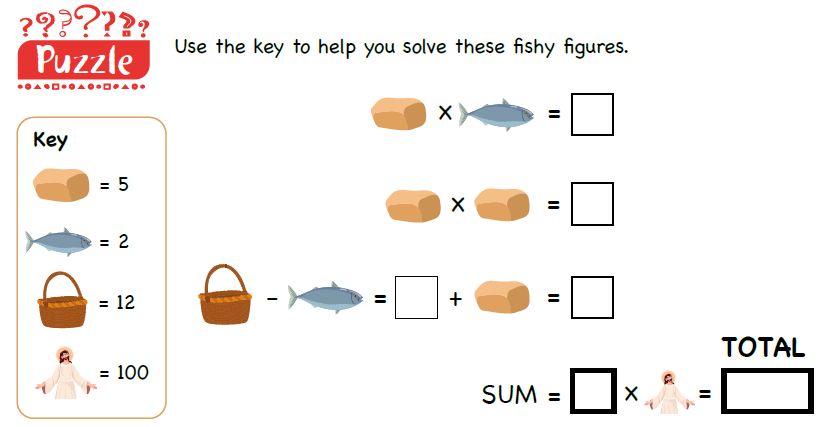
Praying for other churches
w/c 6 August
This week we hold the Lighthouse Centre in our prayers and pray for the Circuit Office staff as they prepare for the new Connexional Year.
w/c 13 August
This week we hold our own church, Christ Church, in our prayers.
Closing prayer
Loving God,
thank you for using our small contributions.
Help us not to doubt
that each of us has something to offer,
and that, when we trustfully offer it to you,
you do amazing things for us, among us and through us –
in Jesus’ name.
Amen.
(Taken from Roots)
